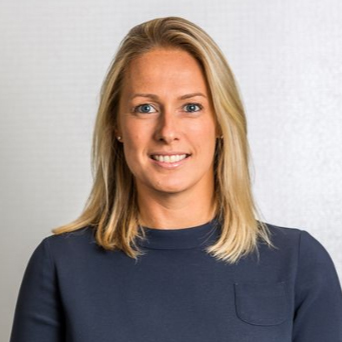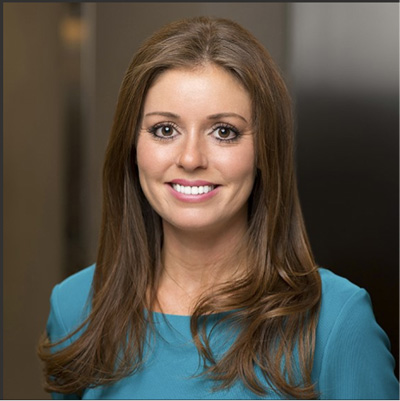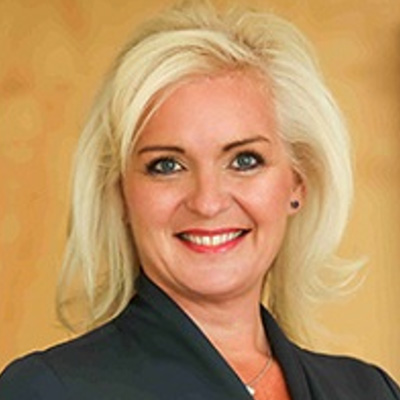In this Alma Spotlight, we celebrate International Women's Day 2024 by posing the following question to five leading voices from our network

"As you have advanced through your career, please can you outline some examples of initiatives or investments that have supported you in your career development? Where do you feel further investment is needed to make real progress?”

Looking back, the best investment in me has been time and opportunity. I have been very fortunate in my career to work for some inspiring people. An important moment was my first step into the industry. I worked for an incredible CFO, Gavin James, who gave me the chance to experience different aspects of business, understand geographical challenges and push me outside my comfort zone. He was wise and supportive - I am forever grateful for his contribution to my career and allowing me to believe ‘this girl can’. This type of investment costs nothing, other than to be thoughtful about allowing the person behind you to succeed.

Creating a supportive environment has made all the difference to me in my career and I would urge anyone that doesn’t currently have this to find a place that helps them become the best version of themselves; you owe it to yourself.
No one is born confident; it comes as a result of doing things outside of your comfort zone. It’s so important that you surround yourself with people who truly believe in you, who give you opportunities to grow and the confidence to grab them.
Personally, I’d love to see more female role models in Finance that have navigated a successful career alongside bringing up children. We’ve definitely seen progress in this area but there is still a long way to go; more flexible childcare policies for both men and women should help level the playing field over time.

Sangita Shah
Seasoned plc chair and benign disrupter (Chair Kinovo plc, Chair RA International plc, Senior Independent Director Inspired plc, Forward Industries (NASDAQ), Board member Quoted Companies Alliance).
Having pursued a byzantine career paved with passion and curiosity, there are key distinct themes which shaped and cultivated my current path.
Moments of Self-discovery and reflection:
Realising and acknowledging that I too mattered.
During my mid-20s, diagnosed with tuberculosis, having spent 24 months zipping around the world setting up the packaged drinks business for Mars Inc, I recall lying in the hospital bed, coming to the startling realisation that I had evolved into the Duracell bunny, always doing and next-to-no reflecting on my life. Everything, everyone was prioritised above me. What did I want in life? I had no inkling. But attending a series of leadership courses began the profound process of self-discovery. Knowing who I was (and importantly who I was not), imbued me with unbounded freedom to pursue careers in journalism, football and in the boardroom. Underpinning this fearlessness was a celebration of being a woman - and ignoring the perennial guilt of not doing any one thing well!
Being discerning in selecting your tribe, informally or formally mentoring, and setting aside time to sustain your tribe
Throughout my career, reflecting back, as a result of the disappointing disillusioning consequences of those interactions that were transactional and plastic, above all, I learned the value of cultivating an authentic network of friends has been incalculable.
Individually or as a group, they were those I could confide in, contribute to, inspired me or simply lived the octopus juggling life that is the intrinsic hallmark of virtually every woman’s existence. A key determinant lay in authenticity. Cultivating these networks was not mechanical or numerical but instinctive and emotional - and for me, deepened with time; chemistry and value synchronicity being the key criteria.
35 years on my fellow Unilever pals where my first career began still meet up. I know the support I received from two high profile individuals during my time at Swindon Town FC during the acrimonious ownership battle in the fact of overt hostility of fans was pivotal. During the era where press self-regulation was under the spotlight, as President of Chartered Institute of Journalists, there were a few whom I could be vulnerable to and openly share my imposter syndrome doubts. This has been the case with virtually every company I have worked for - one or two individuals with whom I spontaneously nurtured a deep relationship and I relish keeping in touch with.
What more can be done?
Hard Capital
Expend significant resources to establish initiatives to provide the education and access to finance for women or women led businesses. Currently less than 5% of entrepreneurial funds are funnelled to women/women led businesses. On any metric there is a deep structural issue.
Soft Capital
Enable and reconfigure formal or informal tribe gatherings for all. As a byproduct of history, many of these gatherings are male-centric and do not fundamentally address the time constrained pressures on most women. For instance, golfing days – these hold next to no appeal to some women – and even if they did, invariably they simply do not have the time as they have family/elderly parental responsibilities which make logistics complex. Subconsciously, the relationships forged during these informal interactions are far stronger and potential impact on career paths.

Jenny Knott
NED at British Business Bank, Simplyhealth Group and Gresham Technologies plc and co-founder of the ImmersiveBoardGame
https://www.immersiveboardgame.com
The key issue for me is why are women still trailing men's success at the top table and specifically in the boardroom? When I look back, I consider myself lucky- to be in the right place (financial services) at the right time (the Big Bang explosion in capital flows into the sector).
This luck extended to me being exposed to seasoned boardroom participants (only men) very early in my career. This opened my eyes to see what real boardroom dynamics and power really looks like and gave me an unfair advantage later on when I attended and ran boards.
And it is this unfair advantage that I've been seeking to remedy—not just lower the drawbridge but blow it up and let true talent in! So, for me, the critical investment is exposure to the boardroom and learning to play the game. But the problem I've found is that until you actually play the game, you can't really understand the rules and succeed.
You know this better than most at Alma in your communications specialism. It's a game that requires skill. And, like every game, it requires practice.
I've been through many leadership and board director courses in my time, but I still attribute luck and practice to my success. There's not much we can do about the luck element. But the practice part interests me as a job to be done.
With this in mind, I developed an immersive board room practice programme with an Oxford Fellow. Most training is in 2D and functional however, three dimensions are required to learn how to be brilliant in the boardroom and at the top table. We call this immersive training The Board Game. So I would call upon all women to get into the boardroom as early as possible in their careers- make the time: PTAs, charities, start-ups, public sector, get in and start learning. Then invest in real practical immersive training.

I think the best investments I have received throughout my career have been time and trust. I have worked with some wonderful people so far who have dedicated their time and patience into my development which has been invaluable, but, for me, more importantly they have encouraged me to push myself beyond what I may have thought was achievable at the time and trusted (whether blindly or not) that I would succeed. That trust is so important because it gives a sense of ownership in one’s own development, which I think is particularly impactful early on in your career, but also it helps build confidence which has a long-lasting effect. I believe creating and nurturing supportive work environments that encourage everyone at all levels to offer these intangible but invaluable investments will go a long way to not only helping women progress but everyone involved.
